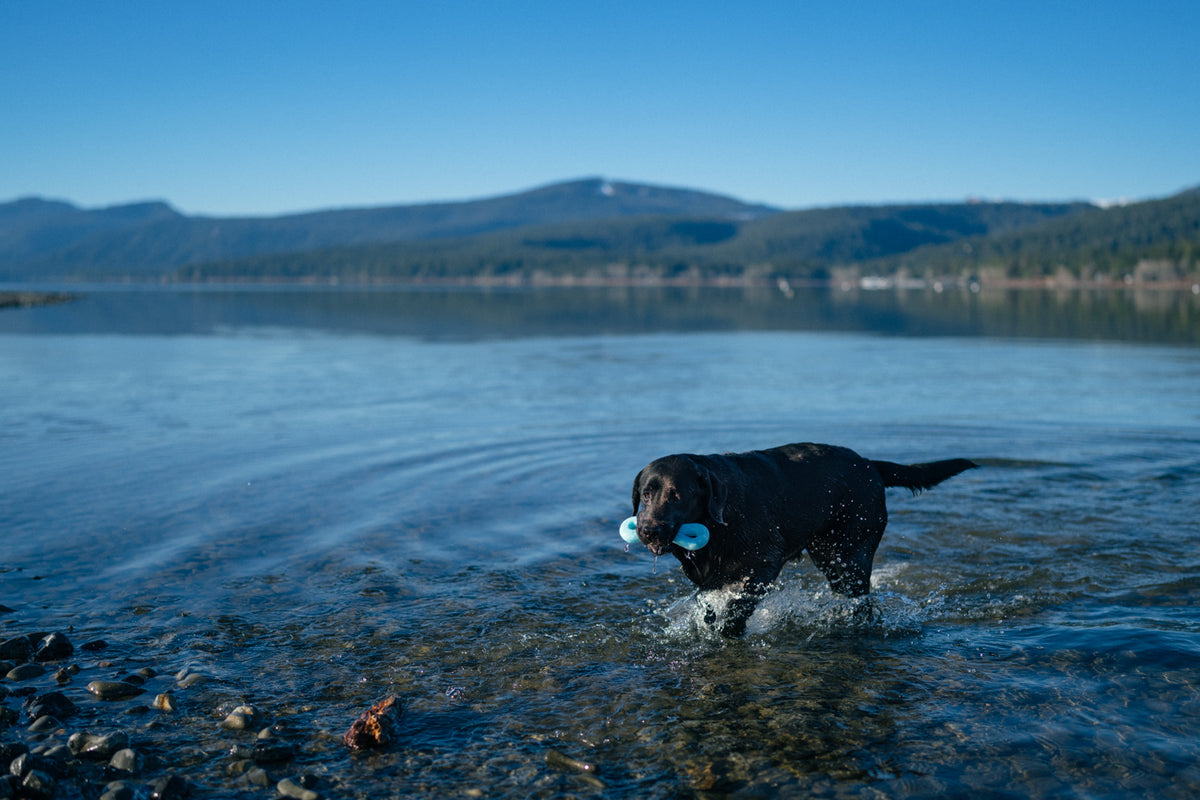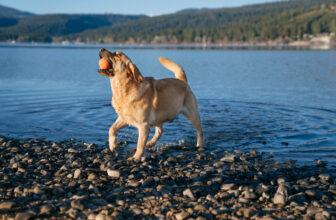There are few things in life more rewarding and exciting than spending time with your dog outdoors. You and your pup can do almost anything together, and you’ll have a blast. Time outside also creates a chance to bond, and it allows you and your dog to get the physical activity that you both need and deserve.
However, if you are planning an exciting adventure, then you also need to keep safety in mind. Even if they act like a best friend, dogs are still animals, and they can get into trouble or get injured if you are not looking. With that said, before you go on your next expedition, keep these tips in mind.
Tips for Hiking With a Dog
Hiking is a great activity to do with your dog because it is a chance for both of you to see more of the outside world and the many plants and animals that make it great. While hiking may seem like a simple activity at first, there are many precautions that you will want to take to ensure the safety of your pup. Before you go, research the trail so you can ensure that dogs are allowed and that it isn’t dangerous for your pet.
The most important accessory to pack for your hike is your dog’s leash. It is very likely that you will be sharing the trail with other hikers, and you want to keep your dog out of their way, so you don’t cause an incident. Pair the leash with a harness to ensure extra protection. It is a good idea to keep a leash in your car at all times just in case you decide to hike at a random destination. Some trails only allow dogs if they are leashed, and you want to be prepared.
It can also get hot out there on the trail, so it is important that you bring enough water, so you both avoid dehydration. Check the weather ahead of time and stay home if it is too hot that day. In general, try to avoid hiking on any day when it is 100 degrees or warmer. Also, remember that your dog will also be burning more calories than they do at home, so you should bring enough food so they can eat and stay energized.
Bigger Adventures
If your hiking trip turns into a bigger adventure, like a mountaineering expedition or a hunting trip, then you will need to take the proper precautions to keep your dog safe. For starters, if you are going on a trip with other people, then you will want to respect their situation as well. Not everyone is as comfortable with dogs as you are.
It is also important to remember the triggers that can make your dog feel stressed or anxious. For example, dogs are often skittish around loud noises like gunshots and loud music, so keep your pet’s mental health in the back of your mind.
If you are traveling deep into the forest or another area where you may encounter wild animals, then you will want to be prepared. Once again, keeping your pet leashed will prevent them from running away and chasing after animals. Keep in mind that some animals that you think aren’t a threat can still be a danger, like deer, which won’t be afraid to attack a dog during their rutting (mating) season.
When you spend any time in the woods, it is also important to be aware of pests like fleas and ticks. Rub your dog down repeatedly during the trip, and if you notice a tick, pull it out immediately to avoid further damage. You can also use a tick spray to protect your dog.
Practice Water Safety
Finally, if any of the adventures will involve water, then safety is especially important. First, make sure that your pet is comfortable around water. Dogs can swim, but some are generally not interested in doing so, while others are not great at swimming in the first place. Gauge your dog’s abilities and then make the proper adjustments.
When your dog is swimming, it is important to give them your full attention, even if they are a strong swimmer. Some dogs can swim across a lake or pool, but they have trouble getting out, so lend them a hand if necessary.
When your dog does get out of the water, it is a good idea to rinse them off if possible. Some pools have chlorine that can harm your dog’s skin. Plus, if they lick their fur, then they can get chlorine in their system. Even lakes and ponds may have high levels of bacteria that can be harmful to dogs, and you don’t want to leave anything to chance. Finally, be aware of the dangers of blue-green algae, which is toxic to dogs. If you notice your dog experiencing seizures, excessive drooling, or vomiting after swimming, then it is possible that they ingested blue-green algae, and you should see the vet immediately.
There are many precautions that you can and should take before taking your dog on your next big adventure. Consider the tips mentioned here, and you can have a fun and safe time with your furry friend.







